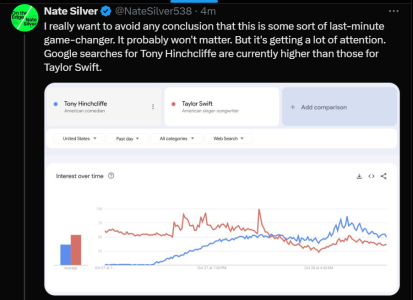The irony is... if you were actually sick he could prolly help
If he can afford the care of a renowned neurosurgeon.
Speaking of healthcare, it's pretty clear that the US has the worst healthcare systems out of similar wealthy developed nations (no offense). ACA was a significant improvement but it's also still lightyears behind many EU countries with universal multi-payer or in some cases single-payer healthcare systems. All of those countries also have significantly lower health spending per capita than the US, even the true single-payer countries.
What we have in Belgium is a universal multi-payer healthcare system. Our health expenditures per capita are also significantly lower than the US as well as several other countries:
https://data.oecd.org/healthres/health-spending.htm
I believe that our healthcare and education system are some of our greatest accomplishments and something every Belgian can be very proud of. Our nation treats both as basic human rights, hence why we try to make it as affordable as possible for as many people as possible. A fine balance has to be met of course. Lowering the cost too much could bankrupt the system.
As the name multi-payer suggests, we have different categories of healthcare. Public and private. The public options are referred to as "health unions" ("Mutualiteit" in Dutch) and joining one is mandatory. Simple logic, a modern healthcare system can not sustain itself without some form of mandate to maximize the size of the pools. There's a number of different health unions and there are generally some minor differences in what they can offer. Some of the health unions have unique deals with a specific hospital and a certain procedure or fee for example. Due to the mandate, you have to be a member of 1 of the major health unions. These unions generally have some affiliation with religion or political stance in their names but they don't really have any bearing on their function. For example some of the major health unions are the Christian Union, Independent Union, Liberal Union, ...
Additionally you can also get private insurance of your choice. Usually this means employer insurance, who generally use private insurers. Since you still have to remain a member of a health union, any private insurance you get will be on top of the mandatory insurance you get from your health union.
The public options for example provide coverage for just about everything but with a lower cost coverage % than what private insurance can offer.
The health unions generally cover around 75% of costs though this can differ significantly based on the kind of fee or procedure being covered.
If I go to my general physician for example, I pay him €24 per visit. He's a nice guy and in many cases doesn't want me to pay him but technically it only costs me €1 out of pocket to may my general physician anyway. €24 is the standard fee for a GP visit in his private practice. However the health unions cover €23 of that cost. The doctor gives you a note at the end that you have to send to your health union and they will then deposit the €23 back to your bank account.
We also have a really great program that I think we can be very proud of too. Since the health unions pay €23 out of the €24 cost for a general physician visit, the government and doctors across the country started an initiative for our poorer citizens who may have problems with coughing up the initial €24. Rather than paying €24 and having to wait for the health union to deposit €23 back into your account, the poor can now simply pay the general physician €1. The health union then simply pays the €23 to the doctor. That way the poor only need to bring €1 with them for a checkup rather than go through the process of sending the doctor's note to the health union so you get a €23 deposit back. Really great initiative, only problem is that while doctors can not deny a patient from using this €1 payment initiative, they are not obliged to tell any of their patients about this initative in the first place. But thankfully most doctors actively participate.
Private insurance can cover just about anything you can imagine and you can get 100% coverage if that is your preference or need. Given my medical condition and vastly improved financials I now have private insurance with 100% coverage for all hospital costs, medical procedures, ... for example.
Also, you are free to visit any doctor, hospital, treatment, ... you want regardless of recommendation or referral. This applies to everyone on both private and public healthcare plans.
If I'm correct that level of complete free choice is not always the case for public healthcare plans in other countries.
Also, you can change your insurance pretty much any time you please, even if you have an upcoming surgery. I think it was early 2017 when I upgraded to a private insurance plan with 100% coverage. Goes without saying I have a number of pre-existing conditions and since specialists are still working on finding a diagnosis for my health problems I always have appointments and tests scheduled in the future at any given moment. All of that had zero impact on changing my insurance, what kind of plans were available to me or the premiums I would be charged. The only factor that went into my premiums is my age (23). I'd have to check the exact amount but my premiums for my private insurance with 100% coverage are about €31/month.
I see our system as the best of both worlds. A universal healthcare system with great public options but also a wide variety of private insurance, as well as employer insurance that can sometimes be from insurers from different countries. For a while I had 100% coverage from German insurer Allianz through my dad's employer insurance for example.
We also have some degree of price capping on certain fees or procedures to lower the general cost. If you're in the hospital your daily residence fee is a fixed fee for example, with lower capped rates for those with disabilities, young children or the elderly.
Another example I like to use is CT-scans and MRIs, both of which I frequently have to undergo. I generally opt to go to a private radiology center because you can get it done much faster, though at a slightly higher cost. I pay €8 for my CT-scans and €12 for an MRI at that private radiology for example.
Would this kind of system be something you'd be in favor of to improve the US' achaic and ineffective system?

 . You just trying to finesse some Cuban money off me cause you short
. You just trying to finesse some Cuban money off me cause you short 


































